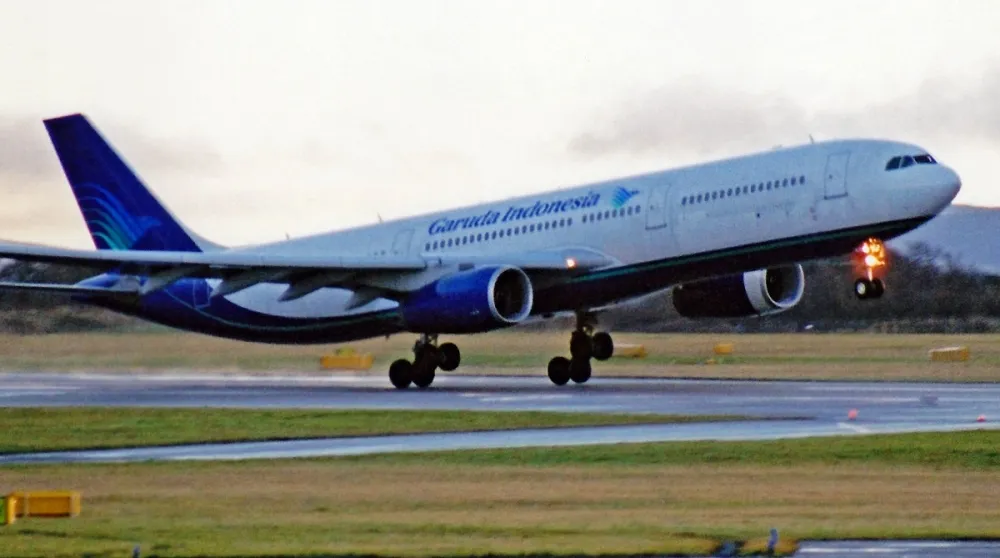
Garuda, AirNZ face fines over freight cartel.
Jun 14, 2017

Garuda Indonesia and Air New Zealand are facing potential fines due to their involvement in a freight cartel that allegedly manipulated air cargo prices. The competition watchdog has uncovered evidence suggesting that both airlines participated in anti-competitive practices, impacting the pricing of freight services. These actions are believed to have caused significant financial harm to consumers and businesses alike. Investigations are ongoing, and the regulatory body is considering imposing hefty penalties to deter such behavior in the future. The case underscores the importance of maintaining fair competition in the aviation and freight industries.
In recent news, the aviation industry is facing scrutiny as Garuda Indonesia and Air New Zealand are embroiled in a freight cartel investigation. This development has significant implications not only for the airlines involved but also for the global freight market. Authorities have signaled their intention to impose hefty fines on both carriers, which raises questions regarding compliance practices across the industry.
The Nature of the Investigation
The investigation centers around allegations that Garuda and Air New Zealand participated in anti-competitive practices in the air freight sector. Such practices may include price-fixing, market allocation, or collusion to restrict competition, which are all violations of antitrust laws. The repercussions of these actions could lead to severe financial penalties as regulators aim to maintain fair competition within the market.
Potential Financial Penalties
Both airlines could face substantial fines if found guilty of the allegations. The penalties could be in the millions of dollars, which would significantly impact their financial standings. The precise amounts are still under review, but the consequences could extend beyond just financial repercussions, affecting their reputations and operational strategies.
Impact on the Freight Market
The air freight industry is crucial for global trade, and any disruption caused by these allegations could have far-reaching effects. If Garuda and Air New Zealand are penalized, it may lead to increased regulation and scrutiny of other airlines, prompting a broader examination of compliance within the sector. This could ultimately lead to a more transparent and competitive marketplace, benefiting consumers and businesses alike.
Understanding Cartel Behavior
Cartel behavior in the freight industry typically involves several key elements:
- Price-Fixing: Airlines may coordinate to set prices at a certain level, eliminating competition.
- Market Allocation: Airlines could divide markets among themselves, agreeing not to compete in specific regions.
- Bid Rigging: Airlines may collaborate to manipulate the bidding process for freight contracts.
Regulatory Response
Regulatory bodies around the world are tightening their grip on anti-competitive practices. The investigation into Garuda and Air New Zealand reflects a growing trend where authorities are willing to impose significant penalties on companies that engage in such behavior. The cooperation among international regulators has increased, allowing for more effective enforcement of competition laws.
Chart: Overview of Freight Cartel Investigations
| Airline | Allegation | Potential Fine | Status |
|---|---|---|---|
| Garuda Indonesia | Price-Fixing | Up to $10 million | Under Investigation |
| Air New Zealand | Market Allocation | Up to $15 million | Under Investigation |
Industry Response
In light of the ongoing investigation, other airlines are likely reassessing their compliance measures. Many companies are prioritizing transparency and ethical practices to avoid similar scrutiny. The freight sector is highly interconnected, and the actions of a few can impact the entire industry's reputation.
Best Practices for Compliance
To mitigate the risk of becoming involved in anti-competitive practices, airlines and freight companies should consider the following best practices:
- Regular Training: Implement training programs for employees on compliance and antitrust laws.
- Internal Audits: Conduct regular audits to ensure adherence to competition laws and internal policies.
- Legal Consultation: Seek advice from legal experts specializing in antitrust regulations to navigate complex issues.
The Future of Air Freight
The outcome of the investigations into Garuda and Air New Zealand will likely set a precedent for how regulatory bodies handle similar cases in the future. As airlines navigate the challenges of compliance, the focus will remain on fostering a competitive environment that ultimately benefits consumers.
Conclusion
In conclusion, the allegations against Garuda and Air New Zealand are part of a larger narrative concerning competition in the air freight industry. As regulatory scrutiny intensifies, it is essential for airlines to adopt best practices that promote fair competition and compliance with antitrust laws. The future of the industry will depend on the ability of companies to adapt and maintain ethical standards, ensuring a fair marketplace for all stakeholders.
Related Articles

Explore Thailand: The Best Islands to Visit for Paradise, Adventure, and Relaxation

The Ultimate Guide to the Best Islands in Thailand for Your Next Getaway

Do babies need passports? How to get a passport for a newborn

How to get a U.S. passport fast: here’s how to expedite the process

What is Mobile Passport Control: 5 reasons why you should use it

SENTRI vs. Global Entry: A detailed guide

Do you need a passport to go to the Bahamas? Let’s find out

Do you need a passport to go to Mexico? A detailed guide

Do you need a passport to go to Canada? We got the answer

Do You Need a Passport for a Cruise: An Essential Travel Guide

Booster Seat Requirements: All the Rules to Follow in Your Rental Car

What Are the World’s Most Powerful Passports, and How Does Yours Rank?

How to Take a Passport Photo at Home: A Helpful Guide

You've got to have heart! Southwest's new livery

Your opinion: Should water be free on low cost carriers?

Young women bolder than guys as solo travellers
